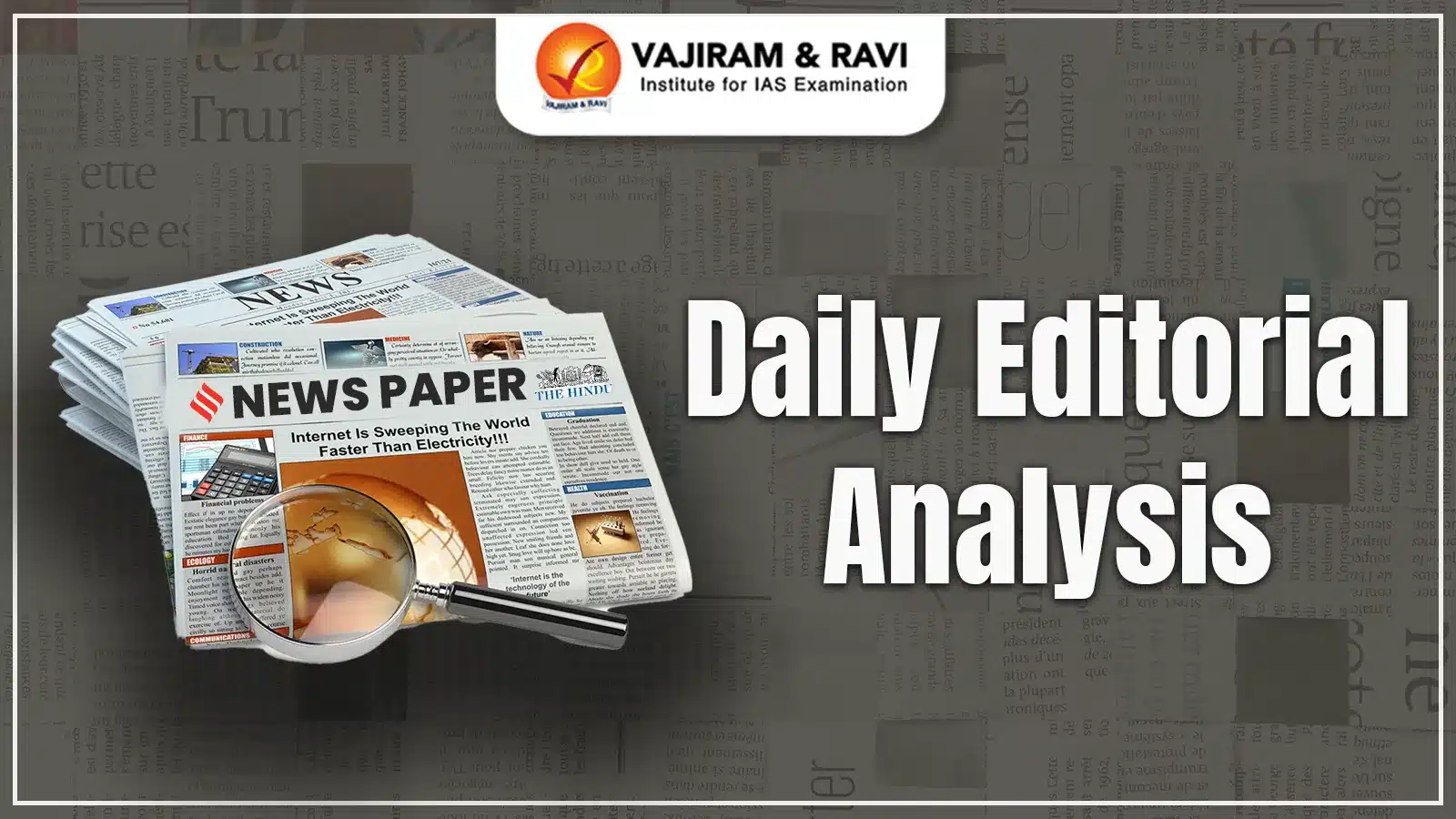Daily Editorial Analysis
UPSC Editorial Analysis by Vajiram & Ravi are carefully curated by experts and updated on our website on a daily basis. These topics, derived from The Hindu and Indian Express, simplify the preparation process by providing a thorough analysis of current affairs. They cover both backward and forward linkages, offering a comprehensive understanding of each topic. Designed as concise daily notes, they ensure that aspirants efficiently address all the key subjects. These editorial analysis are crafted to enable students to effectively utilize the information for answer writing in the Mains exam.
- Daily Editorial Analysis 17 June 2025
- Daily Editorial Analysis 10 June 2025
- Daily Newspaper Editorial Analysis 6 January 2025
- Daily Newspaper Editorial Analysis 4 January 2025
- Daily Newspaper Editorial Analysis 3 January 2025
Benefits of Reading UPSC Editorial Analysis
Here are a few benefits of Reading Vajiram & Ravi Editorial Analysis for UPSC Preparation:
Improves Analytical Thinking: Editorials present diverse perspectives on current issues, helping aspirants develop a balanced and analytical mindset—crucial for Mains answer writing and interview.
Enhances Writing Skills: Exposure to well-structured arguments and language improves vocabulary, articulation, and coherence in essay and GS paper answers.
Builds Content for Mains & Essay: Editorials often cover topics from governance, economy, international relations, environment, and ethics, enriching your content base with facts, arguments, and examples.
Develops Opinion Formation: Regular reading allows aspirants to form informed and mature opinions—essential for essay writing and personality test (interview).
Strengthens Current Affairs Understanding: Editorials offer context, background, and expert interpretation, enabling deeper understanding of current issues beyond just news headlines.
Supports Ethics Paper Preparation: Many editorials touch upon moral dilemmas, governance challenges, and public service themes that align well with GS Paper IV.
Improves Reading Comprehension: Helps build the ability to read and grasp complex ideas quickly, useful for both Prelims (CSAT) and comprehension in Mains.
Connects Static and Dynamic Syllabus: Editorials help link static concepts from subjects like polity, economy, and environment to current developments, making your preparation more integrated.
Daily Editorial Analysis FAQs
Q1. What is editorial analysis?+
Q2. What is an editorial analyst?+
Q3. What is an editorial for UPSC?+
Q4. What are the sources of UPSC Editorial Analysis?+
Q5. Can Editorial Analysis help in Mains Answer Writing?+



